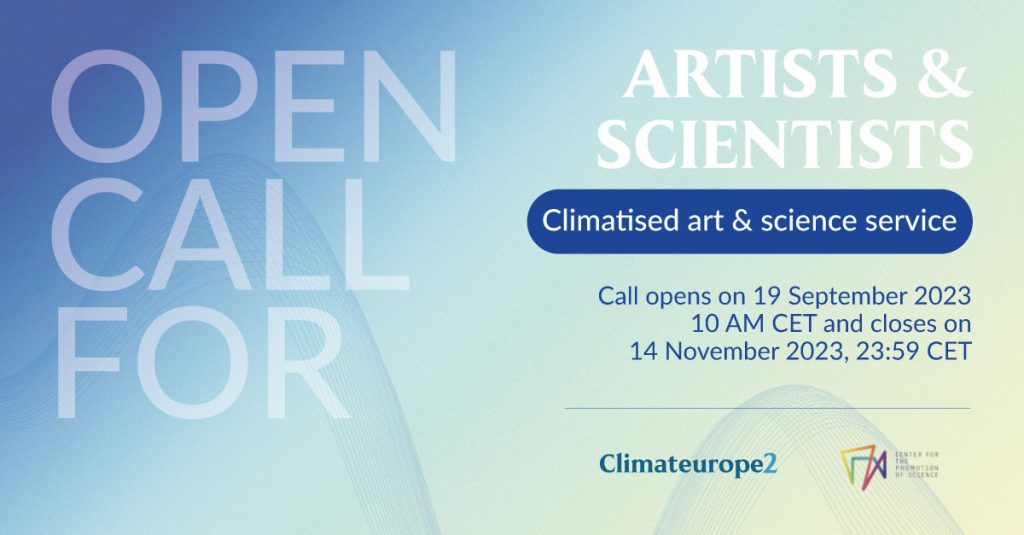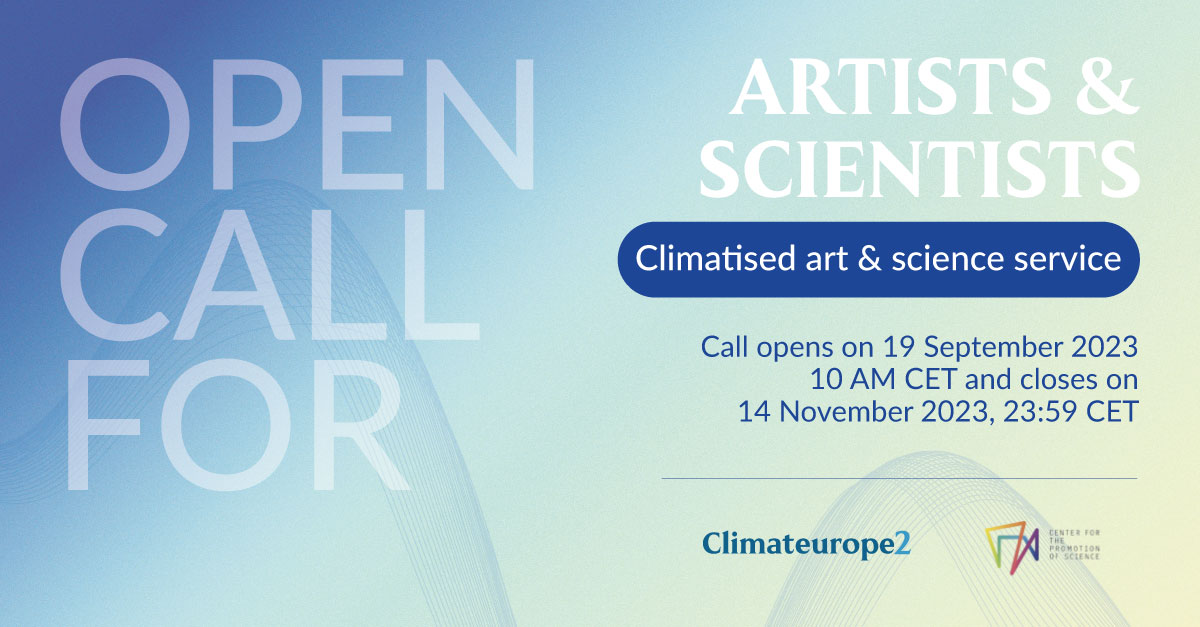Center for the Promotion of Science Open Call: Climate Services and Art
The climate defines every aspect of life on the planet with its changes negatively affecting each living being on Earth. Unfortunately, we are now facing unprecedented consequences and outcomes of climate changes caused by human activities in the last two centuries, a period which gained a new socio-geological term – the Anthropocene.
Scientists have been aware of the negative effects of burning oil and other fossil fuels since the mid-19th century. Modern-day researchers are equipped with the knowledge, tools, and resources to analyze the current status, future developments and ultimate outcomes of the process that started a long time ago and represents a serious threat to ecosystems and even to human existence.
Climate research, data and services are based on complex interaction and collaboration between numerous organizations, institutions, associations and individuals across the globe that work in synergy and try to assess each single information. However, it seems that this complex network is insufficient to initiate a global response able to halt ongoing processes and, eventually, restore those aspects of the nature and human environment that still haven’t lost their substance. In this sense, it is necessary to expand the network of practitioners and professionals and bring in alternative voices ranging from school children and youth, through teachers and citizens, to professions from specific social groups like artists, creative professionals, and decision-makers.
Europe as a continent is especially endangered, with many of its regions facing even more severe outcomes. The rise of temperature increase in Europe is twice the global average, being at around 2,3°C in 2022. Southeast Europe (SEE) regularly experiences extreme events like floods, fires, droughts and heatwaves. Its politicians, decision-makers and even ordinary citizens often disregard serious warnings and predictions, only reacting to tragic and devastating aftermaths. Building capacity and providing information that is fit for purpose is more urgent than ever.
Intending to navigate public participation and interest for climate research, data and services, the art+science call within the project Climateurope2 aims at the artistic exploration of climate systems in the SEE region. This will be implemented through the creation of an interdisciplinary digital artwork that will be toured and presented in different contexts across this region.
This call therefore invites artists to investigate the potential of climate data, research and services for supporting climate change resilience by offering one residency that includes mentorship support, artistic research and the production of a digital artwork. The proposals should take into account available resources, specific expertise, technical requirements and geographical focus on Southeast Europe, with the residency taking place in Belgrade, Serbia up to six (6) months between January and June 2024.
The call is open from September 19 until November 14 and invites individual artists or groups of a maximum of 5 members to apply and develop digital content on the topic of climate services.

OPEN CALL DETAILS
The Center for the Promotion of Science looking for a concept idea/proposal/plan which will be evaluated and which can serve as a basis for the establishment of the 6-month long process. You may find corresponding instructions for the online submission here and the application form here.
Criteria:
- Response to the call, and relevance to climate services
- Feasibility within the given time and budget
- Alignment with the context and goals of the Climateurope2 project Climateurope2,
- Sustainability and impact beyond the duration of the open call
- Compliance with legal and ethical considerations
They are offering:
- Curation and lead over the 6-month long program
- Expert and production mentoring
- Active exchanges with local researchers and experts
- Use of CPN’s resources and physical space
- Technical support and logistics.
Project and local partners:
- Barcelona Supercomputing Center, Spain.
- Euro-Mediterranean Center on Climate Change, Italy
- Republic Hydrometeorological Institute of Serbia
- Faculty of Physics, University of Belgrade, Serbia
For any additional questions and clarifications you can contact: [email protected]

